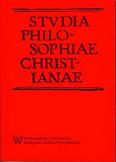Jaka normatywność po „śmierci Boga”? Etyczne implikacje myśli słabej
Which normativity after the “death of God”? Ethical implications of weak thought
Author(s): Andrzej KobylińskiSubject(s): Philosophy, Ethics / Practical Philosophy
Published by: Wydawnictwo Naukowe Uniwersytetu Kardynała Stefana Wyszyńskiego w Warszawie
Keywords: weak thought; strong thought; human nature; morality; nihilism; freedom; natural law; cultural heritage;post-metaphysical ethics;
Summary/Abstract: The main aim of this article is to analyze the concept of normativity in the philosophy of weak thought developed by Gianni Vattimo. Weak thought refers to the idea of the weakening of existence in times witnessing the end of metaphysics, and to a challenge to the Cartesian conception of the subject. This philosophical tradition does not entirely give up on moral normativity. Vattimo proposes a weak notion of normativity, i.e. persuasion, without claims of universal applicability. Weak normativity grows out of dialogue with and respect for tradition, and recommends compliance with specific moral principles. However, it does not consider their applicability to be universal. This kind of normativity is established on the basis of cultural heritage, agreement and social contract.
Journal: Studia Philosophiae Christianae
- Issue Year: 54/2018
- Issue No: 2
- Page Range: 111-128
- Page Count: 18
- Language: Polish

